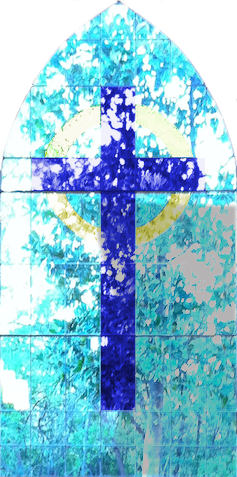The British rock group the Beatles released a song in 1970 entitled, “Let it Be”. It was written by Paul McCartney after he had a dream of his mother Mary who had died fifteen years earlier of cancer. It was as if his mother were speaking to him with a message he really needed to hear from another place, but at that time. The song said, “Mother Mary comes to me, speaking words of wisdom, ‘Let it be’…there will be an answer, let it be.” It was a thoughtful and hopeful song, and his mother taught him a very important lesson in that dream—there will be an answer. It’s like someone said, mothering never ends even if it comes from the world beyond! And it’s the only job that requires no previous experience and provides no advance training, pays nothing, and you can’t quit because people are depending on you. That’s probably the reason why the most frequent statement made by dads to their children is “Go ask your mother.” Mother Mary’s advice is true wisdom…there will be an answer.
It’s like the canticle the Magnificat or the Song of Mary that we read in unison moments ago. A canticle is a hymn, psalm, or a song of praise that is taken from a biblical or holy text. This particular song of Mary is said or sung in almost every Christian community across the planet including the Greek Orthodox Church where it’s called the “Theotokos Ode”. Theotokos is the Greed word meaning “God bearer”. It’s the title given to the Virgin Mary for accepting the angel Gabriel’s request from God that she carry a child into this world who would be the Messiah. The writer Madeline L’Engle said that when Gabriel asked Mary if she would consent to this awesome responsibility…it was as if all of creation held its collective breath until…she gave her answer…Let it be.
So, this Magnificat or Song of Mary took place after this annunciation. It was then that the newly pregnant Mary went to visit her cousin Elizabeth who was also pregnant with John the Baptist. When Elizabeth first saw Mary, the child John in her womb literally leapt for joy, so that Elizabeth shouted out, “Blessed art thou amongst women”!
We see Mary as a nurturing presence for Jesus. But I think what we have to learn from Mary is not just as a mother, but rather as one who believed. She, like John the Baptist in the gospel story today marveled to see what God was bringing about as “The blind receive their sight, the lame walk, the lepers are cleansed, the deaf hear, the dead are raised, and the poor have good news brought to them.” But, you know, it’s amazing how difficult it is for us to truly believe what the good news of God in Christ can mean for our lives. But when this whole God thing, finally dawns on us…suddenly it all comes together and we see, we understand!
It’s called a teachable moment. That’s one of those times when conditions are truly favorable for us to learn something. It’s a moment when something we didn’t know is suddenly and completely known and understood as vitally and genuinely true. The Magnificat is evidence of such an experience happening for Mary. Her exclamation is both praise and a prayer of thanksgiving to God, that God is truly present to us in our time of need. As Mary said, God has “cast down the mighty from their thrones and lifted up the lowly. He has filled the hungry with good things…(and) He has come to the help of his servant”.
We all have our own teachable moments. I remember once looking for my mother during the daytime hours in the house, and I saw that her bedroom door was closed. But I had an urgent question for her, so I burst in to find her kneeling next to her bed with her hands clasped in prayer. I don’t know what I must have done to drive her to such fervent prayer, but a message finally got through to me in that moment. It’s this: our prayers…our petitions to God for help, and our thanksgivings for our blessings, or even our intercessions for friends or family in desperate need are important and they have very real outcomes in our world. Prayer is our channel to God’s presence and God knows and embraces our hearts and bestows upon us his bountiful grace, forgiveness, and real interventions into the needs which grip our lives. God knows the hearts of those who approach him and tells us that very important message to, “Let it be…there will be an answer, let it be.” When we can “Let it be” it’s because we know the Lord is watching over us and will keep us in all our ways…that is the answer, just let it be with God. AMEN.
The Reverend WA Ray
Is. 35.1-10; Magnificat, Ja. 5.7-10; Mt. 11.2-11
